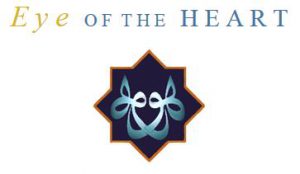
THRESHOLD SOCIETY NEWSLETTER ~ APR 2018
***
April Theme
Presence is just the beginning; but with presence the empathy of the heart can awaken.
We welcome your reflections on this theme.
***
Reflection on March’s theme:
In order to become human, we need to always be within the Divine Presence—to be aware of God, to hold Him in our hearts.
~Suleyman Dede
~ Jeremy Henzell-Thomas [Glastonbury, UK]
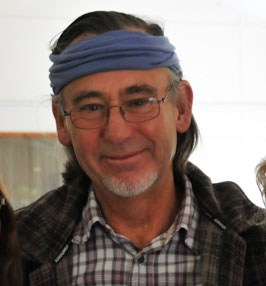 Reflecting on this month’s theme which highlights the need always to be within the Divine Presence, I recalled Mevlana’s urgent advice:
Reflecting on this month’s theme which highlights the need always to be within the Divine Presence, I recalled Mevlana’s urgent advice:
Listen, listen, don’t linger anywhere without Divine grace!
[Masnavi VI, 3841]
The ritual prayer is five times daily,
but the guide for lovers is the verse,
‘they who are in prayer continually’.
[Masnavi VI, 2669]
Mevlana here echoes Qur’an 70:23 which Muhammad Asad translates as ‘those who consciously turn towards God in prayer’. This, he believes, ‘is the meaning of the expression al-musalin (“the praying ones”), which refers not to the mere ritual of prayer but, rather to the attitude of mind and the spiritual need underlying it.’
And one might see that as reflecting another verse in the Qur’an that mentions those who remember their Lord standing, and sitting, and lying on their sides [3:191], or in other words at all times of the day and night.
How can we cultivate that constant state of remembrance?
In asking that question, I was immediately reminded of Daliah Merzaban’s quotation from Al-Ghazali in last month’s newsletter about the cumulative effect of ‘intimacy and invocation’ in nurturing awareness of God: ‘Verily, the soul becomes accustomed to what you accustom it to. That is to say, what you at first burden the soul with becomes natural to it in the end.’
I recall that Al-Ghazali also says in his Book of Invocations that although the practice of zikr initially requires constant effort, after a while, he says, hardship gives way to joy, sweetness and love (hubb), and ultimately it becomes such a blissful thing that the aspirant cannot endure without it. Daliah reminded us that Mevlana says exactly the same:
Everyone who delights in some act of devotion
can’t bear to miss it,
even for a short while.
[Masnavi II, 2769]
The message here is clear. It is through constant practice (not merely as repetitive ritual but exercised with conscious awareness) that remembrance of God takes firm root in the heart.
Be courageous and discipline yourself,
Work. Keep digging your well.
Don’t think about getting off from work.
Water is there somewhere.
Submit to a daily practice.
Your loyalty to that
is a ring on the door.
Keep knocking, and the joy inside
will eventually open a window
and look out to see who’s there.
[Masnavi V]
In his Book of Invocations, Al-Ghazali says that it is through the single-heartedness (ikhlas) created from practice that the orientation of the whole personality is totally changed. One looks forward above all to the next encounter with God on the continuing journey. The deeper we swim in this ocean, the more ardent becomes our desire (shawq) to meet the Beloved again, and each encounter only precipitates greater love.
This yearning to meet the Beloved again and again reminds me of the first time I was privileged to attend the Threshold Society gathering at Gaunts House in Dorset in 2013. In my talk, I mentioned that the house was built in the 18th century but an earlier Gaunts House on the same spot was probably given to John of Gaunt, the fourth son of King Edward III, four hundred years earlier in the 14th century by his beloved wife Blanche, and may well have been a ‘trysting house’, that is a secret rendezvous for lovers.
The root of the word ‘tryst’ (deru) means ‘solid’, and gives us many words expressing durability, endurance, holding fast – most concretely the word ‘tree’, and of course, the word ‘truth’ itself. In the Qur’an, the good word, the word of Truth, is a blessed Tree, firmly rooted, with branches that reach to the sky.
The word ‘tryst’ often appears in translations of Mevlana’s poems: ‘The fire of my tryst at midnight would strike flames into the horizon of the sky.’ The medieval conventions of courtly love, the lovers’ tryst to meet before dawn, the searing rapture of union after separation, are of course nothing but the imagery of the love of the Divine Beloved, especially from Sufi poetry, transplanted to the domain of romantic love.
Our tryst, of course, is with the Divine Beloved, and it has always inspired me no end to know that when we assemble at Gaunts House we are there to strengthen that bond, to root ourselves more deeply in that love. Such is the precious gift of companionship in community.
Until the next tryst!
~ Jeremy Henzell-Thomas is an independent researcher, writer, educational consultant, and visiting fellow at the University of Cambridge.
***
Salaat, recited by Shaikha Camille Helminski
Listen to the iqama, salaat and tesbihat recited by Shaikha Camille here.
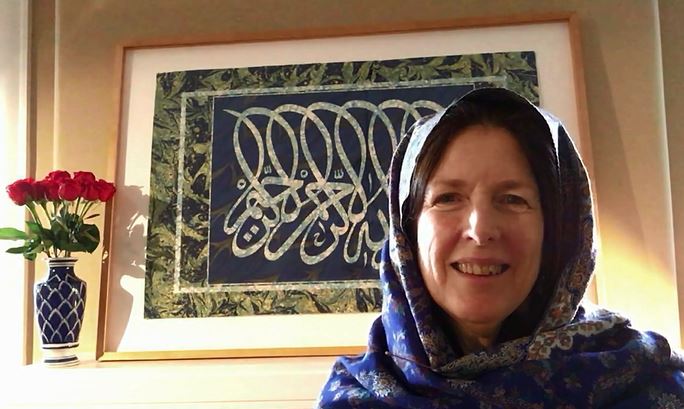
***
Practicing Presence in the Everyday
~ Abdur Ra’uf Gharib [Louisville, USA]
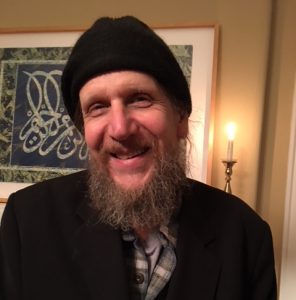 Although we all have a variety of longings, don’t they all, in the end, amount to our innermost longing for the Divine? The more we understand this, the more we are drawn to seeking presence through remembrance, which in turn cultivates gratefulness and contentment. Getting through the day to day routines of our lives in this world can make it difficult to maintain this kind of consciousness. Many of us have strenuous demands on our time and attention, and in some cases, it can seem to be more than we can bear. Fortunately, we have been given a wonderful variety of gifts that are effective tools to help. Among these tools, perhaps none is more important than practicing presence, because without presence, what is the value of any practice? And, with presence, even the most mundane task can become worship. Of course, there is a great book on this subject (Living Presence) that is always worthwhile to revisit.
Although we all have a variety of longings, don’t they all, in the end, amount to our innermost longing for the Divine? The more we understand this, the more we are drawn to seeking presence through remembrance, which in turn cultivates gratefulness and contentment. Getting through the day to day routines of our lives in this world can make it difficult to maintain this kind of consciousness. Many of us have strenuous demands on our time and attention, and in some cases, it can seem to be more than we can bear. Fortunately, we have been given a wonderful variety of gifts that are effective tools to help. Among these tools, perhaps none is more important than practicing presence, because without presence, what is the value of any practice? And, with presence, even the most mundane task can become worship. Of course, there is a great book on this subject (Living Presence) that is always worthwhile to revisit.
For me, as well as many others, the greatest demand on my time and energy is just to earn a living. Just to meet the demands of this physical existence. It can cause one to wonder: “Am I a slave to Allah, or am I really more of a slave to my stomach? On which one do I actually spend more time and attention and energy serving?”
I work on the railroad as a conductor on freight trains. That involves picking up and setting off rail cars, building trains in the yard, and getting them over the road between Louisville, Ky. and Cincinnati, Ohio. 60 hour weeks are normal, and there is no schedule, so much of my life is on the rails. This, like many situations we all find ourselves in can seem rather bleak. But then, even while riding through some lonesome train yard hanging off the side of a box car at 3 o’clock in the morning in the middle of January, I remember that I can speak the Name of Allah here too.
To Allah belong the east and the west:
wherever you turn, there is the countenance of Allah.
Behold, Allah is infinite (al-Wasi’), all-knowing (al-‘Alim).
[Qur’an 2:115]
And isn’t it just as good to say it here as it is on a beautiful beach, or mountain, or forest, or masjid? Of course, I would prefer any of those options, but why? What more could I want than that greatest of privileges, which is to be allowed to speak the Name of Allah?
Our Dear Mevlana (may Allah sanctify his secret) said in a quatrain:
I smell the fragrance of your mouth from the wild flowers in the meadow,
And I see your colors in the tulip and the jasmine.
When all these are not available to me, I open my lips
So that your name is spoken- and I hear it.
Often, it’s my responsibility to line trains from one track to another by means of throwing a switch, which is a lever that moves the rail. (For a demonstration of how that works, YouTube throwing a railroad switch). This becomes zhikr. When stepping on the release latch, I say Bismillah-ir-Rahman-ir Rahim. Lifting the lever, I say SubhanAllah. When the lever reaches the apex, I say Alhamdulillah. When pushing it down to lock it into position, I say Allahu-Akbar. Then, once the points have been checked, I say Mash’Allah. If railroading can become worship, just imagine the possibilities.
So remember Me, and I will remember you;
and be thankful to Me;
and be you not ungrateful towards Me.
[Qur’an 2:152]
While I am but a common laborer on the railroad, most of us, whether we are physicians, or teachers, or merchants – whatever our job in this dunya, face similar challenges in our effort to be conscious and present, remembering Allah. We can be discouraged, feeling we just don’t have the time and energy to commit to this path what it deserves. May Almighty Allah help us all to learn to be present, and conscious, so that every breath may become worship, regardless of the immediate task at hand, however tedious it may seem. Amin.
Narrated Abu Hurairah: The Prophet said, “Allah says, I am just as My slave thinks I am, and I am with him if he remembers Me. If he remembers Me in himself, I too, remember him in Myself; and if he remembers Me in a group of people, I remember him in a group that is better than them; and if he comes one span nearer to Me, I go one cubit nearer to him; and if he comes one cubit nearer to Me, I go a distance of two outstretched arms nearer to him; and if he comes to Me walking, I go to him running.
~ Sahih Al-Bukhari
***
Awakening with Rumi
Weekend workshops with Sh. Kabir & Sh. Camille
Apr 13-15, 2018
Beloved Yoga, Reston, Virginia
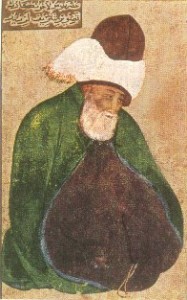 Outside the founders of the great traditions — Buddha, Jesus, Muhammad — Rumi may currently be the most universally respected spiritual figure in world history, as well as a reconciling figure among all traditions. Many have experienced the transforming power of Rumi’s poetry, but even more than this is the transmission that comes through a living tradition and the practical application that awakens a presence in our hearts. Within a world that harshly competes for our attention, this presence can help us move through our daily lives with dignity, compassion, wisdom, and awareness.
Outside the founders of the great traditions — Buddha, Jesus, Muhammad — Rumi may currently be the most universally respected spiritual figure in world history, as well as a reconciling figure among all traditions. Many have experienced the transforming power of Rumi’s poetry, but even more than this is the transmission that comes through a living tradition and the practical application that awakens a presence in our hearts. Within a world that harshly competes for our attention, this presence can help us move through our daily lives with dignity, compassion, wisdom, and awareness.
Join us for a weekend of spiritual practice, poetry, music, conversation and friendship, so that we may awaken to our spiritual essence and discover greater purpose in our lives.
***
Ninety-Nine Names of God eCourse
A Journey of Discovery and Renewal
May 14 – Jun 15
Shaikha Camille Hamilton Adams Helminski
& Daniel Thomas Dyer
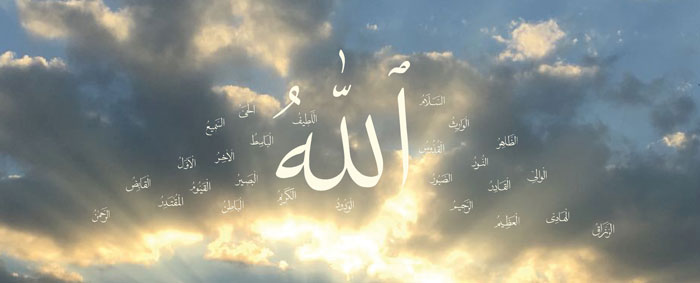
This 15 session course is intended to explore the Qualities or “Names” of God, intrinsic to the Islamic tradition, in their interplay in our lives, as a doorway to self-knowledge and intimacy with our Sustainer, a journey of discovery and renewal. Especially during the coming month of Ramadan when our material food is limited for those who are fasting, focusing with these Qualities can provide substantial nourishment in other realms—for heart and soul, for anyone who engages with them in yearning for a deeper connection with Enlivening Spirit.
Register now on Spirituality & Practice.
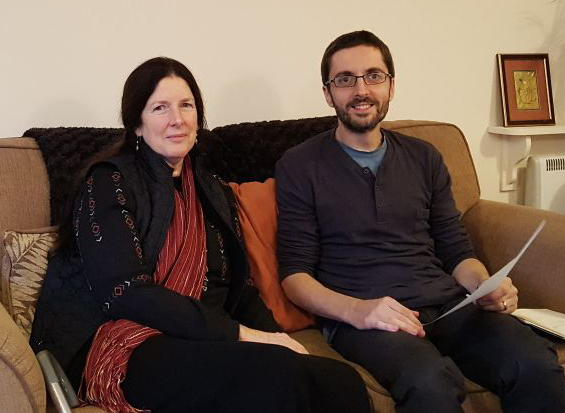
The course is based on material from the following books:
The Ninety-Names of the Beloved by Camille Hamilton Adams Helminski
The 99 Names of God by Daniel Thomas Dyer
***
Coping and Thriving with Catastrophe eCourse
Apr 2 – May 10

This e-course provides a multifaith and interspiritual guide to “Coping and Thriving with Catastrophe.” Each week will feature a different teacher who will share the wisdom and practices from their tradition. Sh. Kabir and Sh. Camille will be guest teachers during week two.
***
Project on Dreams
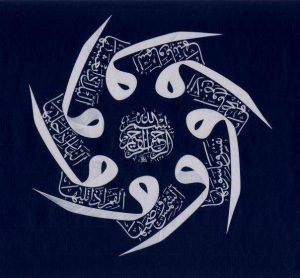 Jeremy Henzell-Thomas, whom some of you may know from the talks he has given over the years at Threshold Society retreats in the UK, is planning to write a book on dreams. The focus of the book will not be on ‘psychological’ dreams that highlight psychological ‘issues’ that call for personal ‘psychoanalytic’ interpretation, but on metaphysical dreams that convey a message of guidance or illumination to fellow seekers. If you would like to relate any dreams which you consider are of this type and are open to having any of them and your own comments included (anonymously) in Jeremy’s book please feel free to contact him at jeremyht66@hotmail.com. Many friends in the Threshold Society have already expressed a keen interest to do so, and all are welcome.
Jeremy Henzell-Thomas, whom some of you may know from the talks he has given over the years at Threshold Society retreats in the UK, is planning to write a book on dreams. The focus of the book will not be on ‘psychological’ dreams that highlight psychological ‘issues’ that call for personal ‘psychoanalytic’ interpretation, but on metaphysical dreams that convey a message of guidance or illumination to fellow seekers. If you would like to relate any dreams which you consider are of this type and are open to having any of them and your own comments included (anonymously) in Jeremy’s book please feel free to contact him at jeremyht66@hotmail.com. Many friends in the Threshold Society have already expressed a keen interest to do so, and all are welcome.
***

Threshold’s collaborative blog channel The Living Tradition on Patheos.com is reaching new audiences and sharing the experiences of our community in a unique and vibrant way.
Let us know what you think by commenting on the posts — join the discussion at www.patheos.com/blogs/livingtradition and “follow” The Living Tradition.
Recent articles:
Book Review: Rumi Comes to America by Daniel Thomas Dyer
My Journey From ‘Moderate’ Muslim to Seeker of Love by Daliah Merzaban
***
Holistic Islam, The Audiobook
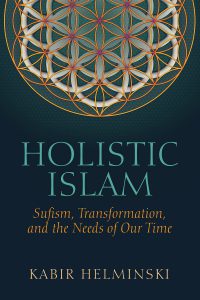
Read by its author Kabir Helminski [also now available on Kindle].
***
Recent Publications
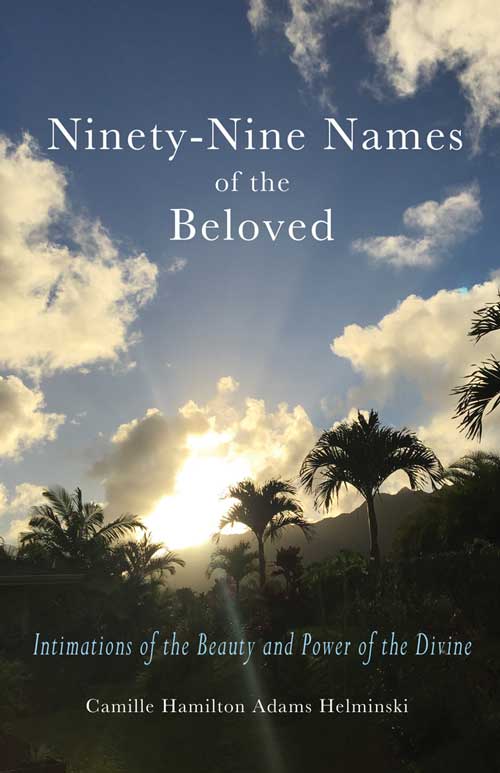
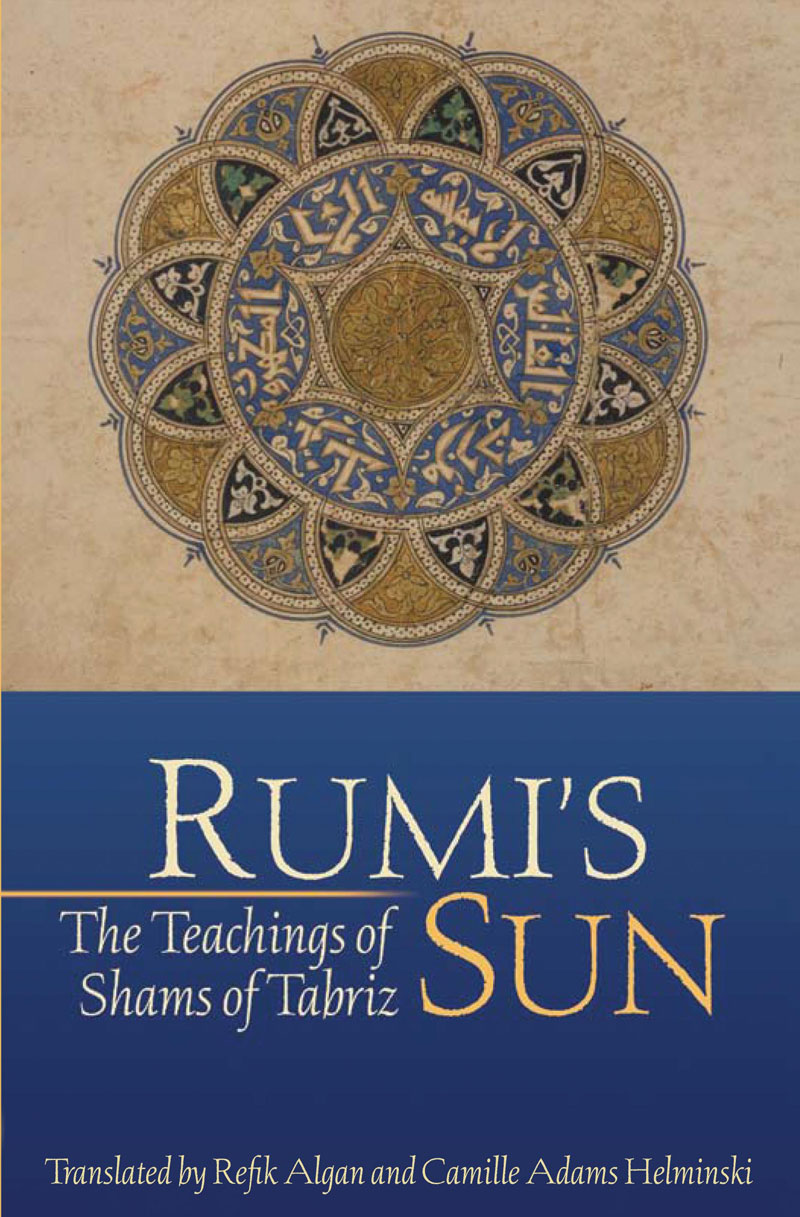
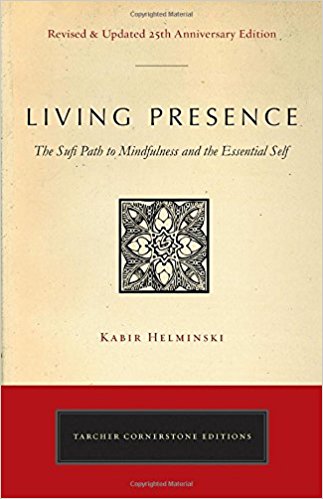
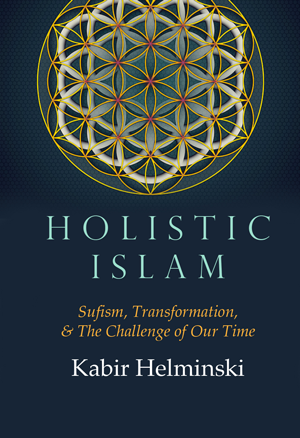
We encourage you to leave reviews on Amazon.
***
Calendar
Apr 13-15: Reston, Virginia. Awakening with Rumi, weekend workshops with Sh. Kabir & Sh. Camille. More details. (KC)
May 15: Ramadan
May 14 – Jun 15: Ninety-Nine Names of God online e-course through Spirituality & Practice, register now (C)
Jun 15: Eid al-Fitr
Jul 7-8: Bradford, UK. Shaikh Kabir will be presenting at the Bradford Literature Festival (K)
Rumi and the Mystery of Being Human, book your tickets
Holistic Islam, book your tickets
Aug 24-27: UK Annual Retreat, Gaunts House, Dorset. Registrations open in July (KC)
Events with Sh. Kabir and Sh. Camille marked (KC)
***
One Step to the Goal
The more learned a person is, the more distant he is from the goal. No matter how advanced such a person’s thought becomes, still he remains far from the goal. This is the work of the heart, not the work of the head.
It’s like the story of the man who had found a treasure map. The map said, “Go out such and such a door; you will find a dome. Turn your back to that dome, and turn your face towards the qiblah; release an arrow, and the treasure is hidden where the arrow falls.”
The man did so, and shot the arrow, but he couldn’t find the treasure. News of this reached the king who then commanded his archers who could shoot great distances to let fly their arrows from that spot, but still nothing was found.
Then the man sought help in the Divine Presence and received an inspiration, “We didn’t say to draw the bow!” He returned to the spot, put the arrow in the bow, but did not draw it. Upon release, the arrow fell right in front of him. When Divine help arrived, it was only a step to reach the goal. “Two strides and he arrived. . . .”
Now what does this story imply in relation to actions? And what in relation to spiritual exercises? Those who shoot the arrow far away remain more deprived, because only a step is necessary to reach the treasure. But what is that step? Who has that step? “He who knows his/ her self, undoubtedly knows his/ her Lord (hadith).” And the one who is called the commanding self reaches satisfaction and peace.
[Rumi’s Sun: The Teachings of Shams of Tabriz]
***
We’d love to hear from you – get in touch at eyeoftheheart@sufism.org
***
Find out how to support the work of Threshold Society.
***
Receive this newsletter by email: sign-up here.

